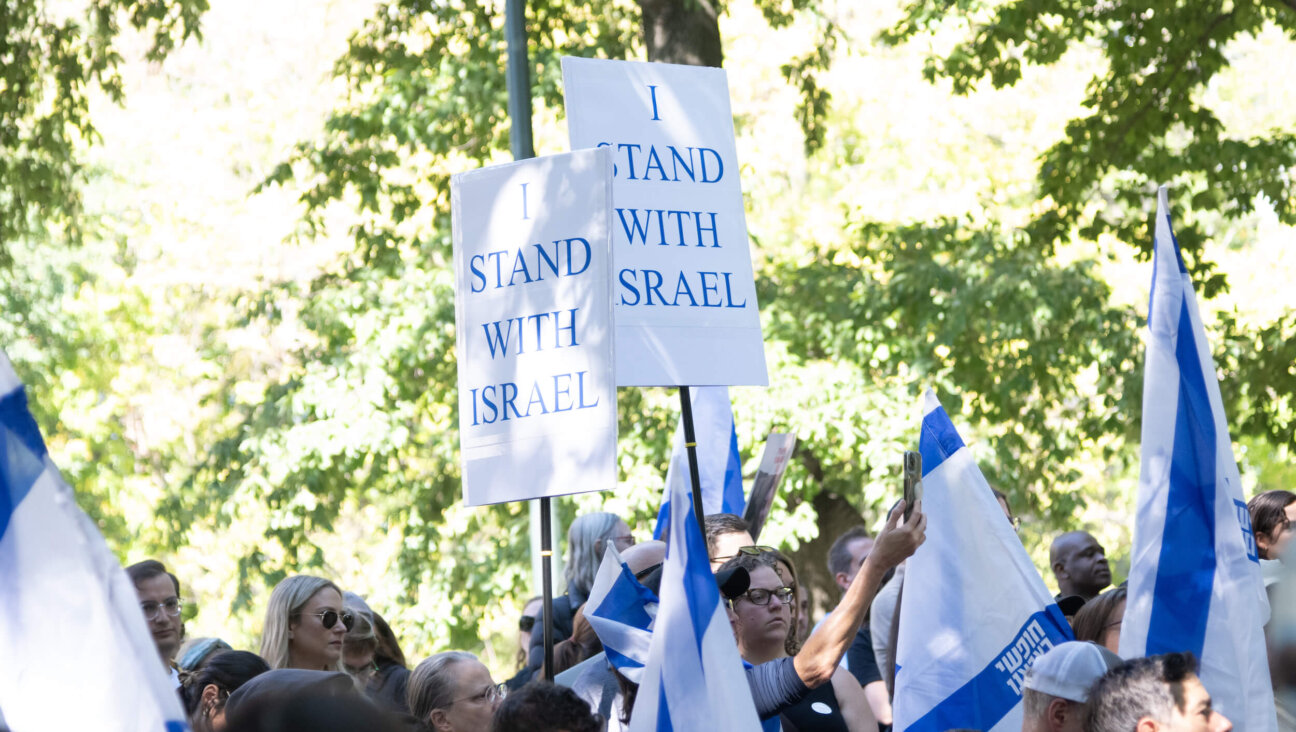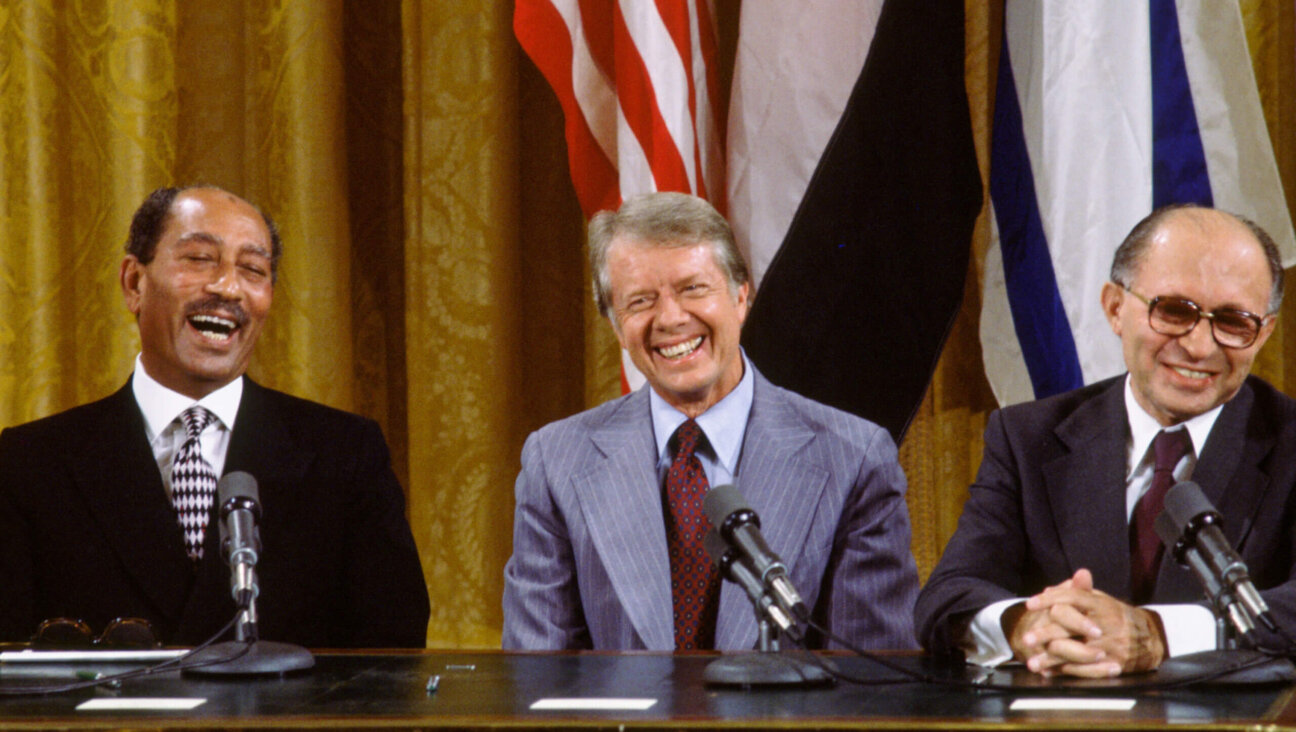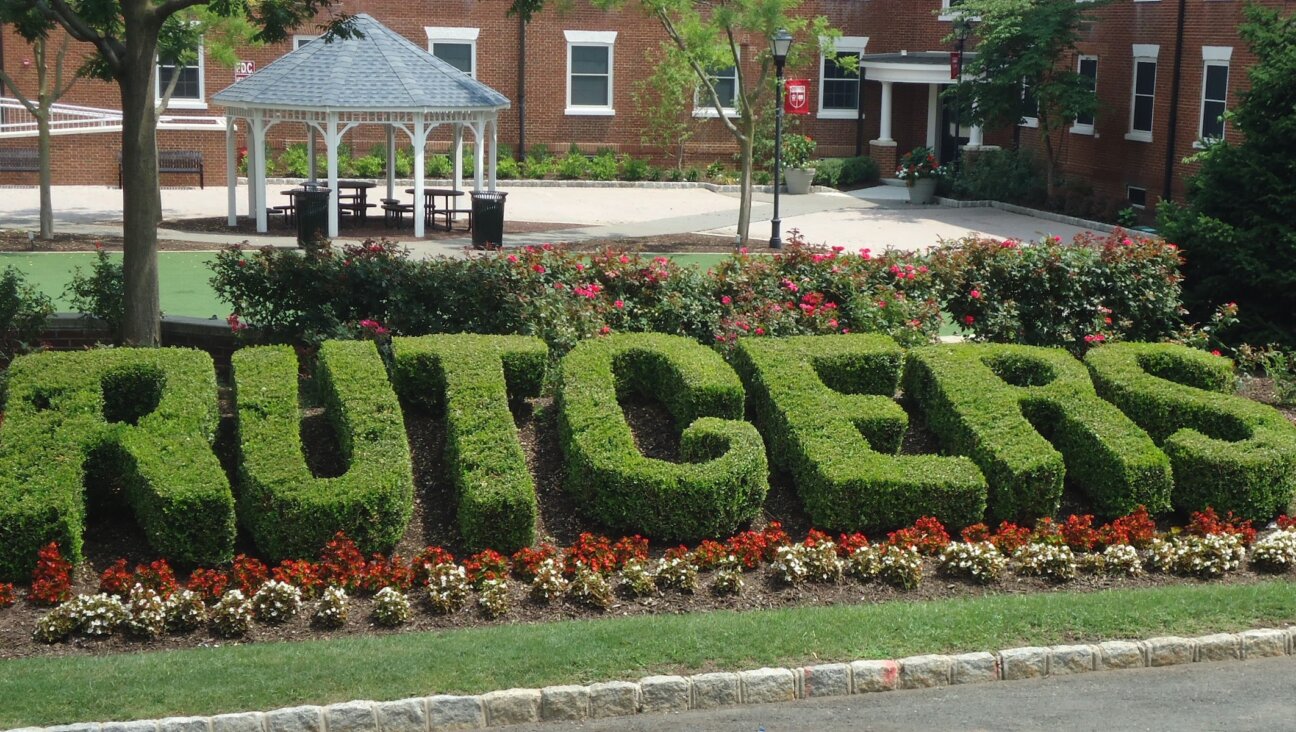Why Students Are Turning to BDS

Image by Getty Images
Sheldon Adelson’s recently convened conference to counter the boycott, divestment and sanctions movement is significant not because it defines a new era in the BDS conversation, but because it helps underline the reasons that the establishment Jewish community is losing the BDS debate.
I’ve spent the past five years building relationships with students and campus professionals at dozens of colleges and universities across the United States. At each of those schools I worked closely with student leaders, opposing divestment bills on their campus. A few overarching realities have emerged as a result of those thousands of conversations and meetings.
As undergraduates are challenged to think critically about social issues, foreign policy and our political system, they inevitably engage with the involvement of the United States in the Israeli-Palestinian conflict. Any student of political science knows the name Sheldon Adelson and is considering how his views on Israel impact the Republican presidential race. Foreign policy classes dissect Prime Minister Benjamin Netanyahu’s attempts to undermine the president’s Iran negotiations. Policy courses explore the significance of lobby groups like AIPAC. These same students read news about the most hard-line Israeli government in history, growing hostility for the two-state solution by Israeli coalition members and the troubling anti-democratic tendencies of the Palestinian Authority leadership.
As part of this knowledge, unsurprisingly, American college students are aware and concerned about the occupation. The reason is not, as some have posited, because it is in vogue as a cause, but because the occupation is a nightmare for Palestinians and Israelis alike, and because the United States is playing a significant role in its perpetuation. Students are increasingly skeptical of narrow definitions of pro-Israel that amount to uncritical support for the actions of the current Israeli administration.
They want to translate their concerns and commitments into action. College campuses are a laboratory for activism and advocacy that shape a new generation of political engagement. Here, BDS leaders have a compelling case to present: Recent efforts at bilateral negotiations and diplomacy have failed. Settlements are growing with the support of millions of tax-exempt American philanthropic dollars.
BDS resolutions, campaigners note, offer a nonviolent action that students can take to shift the conversation around Israel/Palestine and to create a “cost” for the occupation. Its leaders point to what they believe to be their ample successes: SodaStream is closing its West Bank factory and Ahava, its flagship London outlet. The European Union is pursuing the labeling of settlement products. And the Jewish community is spending millions of dollars to combat BDS campaigns on campus.
In the face of BDS resolutions, campus Hillels and pro-Israel groups follow a formula: Form a coalition, highlight diversity and technology in Israel, and focus on the language of peace and two-states. However, not a single one of these campus coalitions has offered a serious vehicle for students to pursue a two-state solution or help end the occupation. Ironically, coalition meetings often take place in Hillel buildings adorned with advertisements for Masa grants that can be used at programs based in Israeli settlements. No sleek talking points or well-funded Hasbara efforts will change the fact that the driving concern for the majority of students is simply the occupation.
Students easily see through the empty rhetoric, with the Jewish and pro-Israel communities losing credibility along the way. Of course no progressive student believes an Adelson-funded project reflects his or her values. But few of those same students believe that the larger Jewish communal strategy is any more reflective of their legitimate concerns.
It is understandable that some Jewish leaders are worried about anti-Semitism. There are chilling examples of Jewish students who, seeking campus leadership positions, are asked discriminatory questions. And some BDS supporters are indeed interested primarily in demonizing Israel and, in some cases, Jews as a whole. But these are the minority on American campuses, and narrowly focusing on them overlooks the bigger picture: Most of the students who end up supporting divestment resolutions are not anti-Semitic, nor are they hostile to Israel. They are Americans deeply concerned about impacting a critical United States foreign policy issue. Princeton’s recent divestment referendum reflects this reality. Students rejected divestment by a slim margin of 52%–48%. But if you ask around at Sabbath dinner, few students believe anti-Semites or anti-Israel zealots dominate their campus.
Students need to be taken seriously as they chart their approach to critical questions of Jewish life and American politics. Anyone concerned about the Jewish future should be horrified at a meeting about campus issues, like Adelson’s, that conspicuously avoided the voices of actual college students.
As long as being pro-Israel is synonymous with supporting occupation and offering empty platitudes about peace, the traditional pro-Israel community will continue to lose. Opposition to the occupation and its destructive impact should be a pro-Israel rallying call. Because the answer is not just in opposing BDS, but also in embracing a serious, pro-Israel effort to end the occupation through a two-state solution.
Ira Stup is a senior consultant to the J Street Education Fund and the former director of J Street U, the campus arm of J Street.
A message from our Publisher & CEO Rachel Fishman Feddersen

I hope you appreciated this article. Before you go, I’d like to ask you to please support the Forward’s award-winning, nonprofit journalism so that we can be prepared for whatever news 2025 brings.
At a time when other newsrooms are closing or cutting back, the Forward has removed its paywall and invested additional resources to report on the ground from Israel and around the U.S. on the impact of the war, rising antisemitism and polarized discourse.
Readers like you make it all possible. Support our work by becoming a Forward Member and connect with our journalism and your community.
— Rachel Fishman Feddersen, Publisher and CEO






















